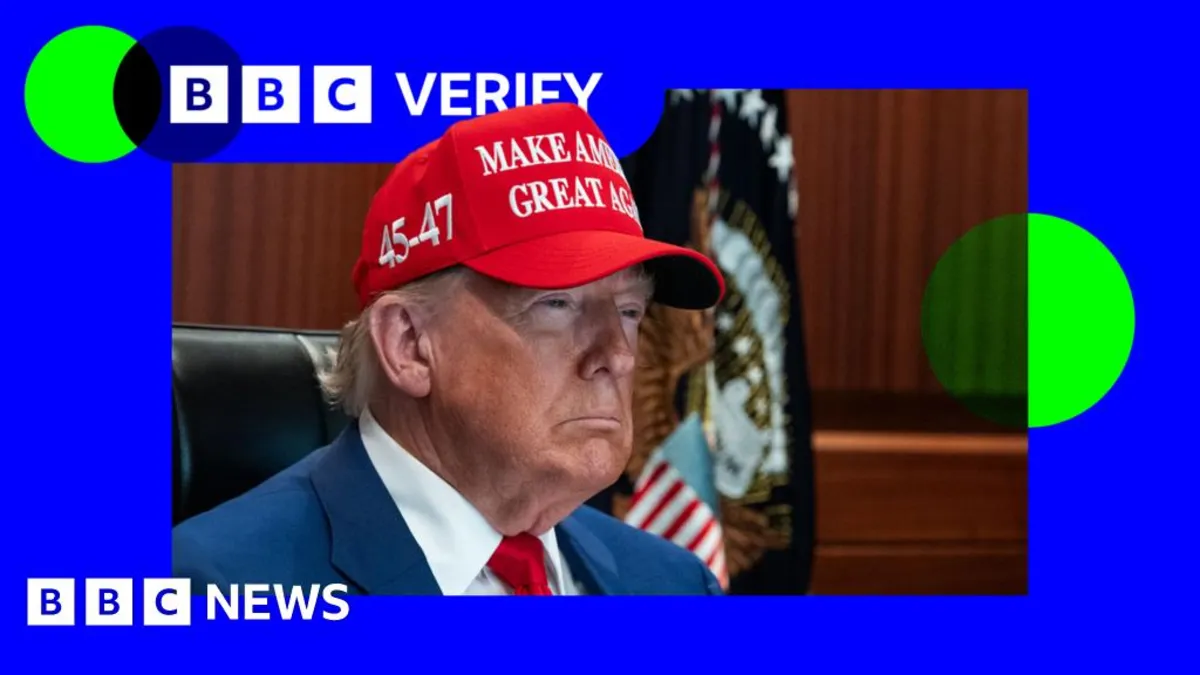
In the wake of President Donald Trump's recent military actions against Iran, significant debate has emerged regarding his legal authority to initiate such strikes. Lawmakers from both the Democratic Party and Trump's own Republican Party have expressed skepticism about the constitutional basis for his decision. Prominent Republican Congressman Thomas Massie took to X to assert that the strikes were not constitutional, while fellow Congressman Warren Davidson echoed similar sentiments, stating that it's challenging to find a constitutional justification for the actions taken.
In contrast, Republican Speaker of the House Mike Johnson defended President Trump, arguing that he acted in response to an imminent threat, which outweighed the need for Congressional approval. Johnson referenced a long-standing tradition of similar military actions by presidents from both parties, suggesting that Trump's decision aligns with historical precedents.
To evaluate Trump's military actions, it is essential to reference the United States Constitution. Two specific articles are particularly relevant: Article I and Article II. Article I explicitly grants Congress the power to declare war, while Article II designates the president as the Commander in Chief of the armed forces. According to sources within the White House, this duality serves as the foundation for the rationale behind the strikes on Iran.
Many constitutional experts argue that Article II does grant the president the authority to use military force under specific conditions. Although the Constitution does not meticulously define these circumstances, they have historically been interpreted to include scenarios involving actual or anticipated attacks or actions necessary to safeguard critical national interests. Experts at the Council on Foreign Relations note that preventing nuclear proliferation was cited by the Trump administration as a justification for the strikes.
Legal scholars, including Claire Finkelstein from the University of Pennsylvania Law School, affirmed that Trump possessed some authority to order the military strikes given the circumstances. "The short answer is yes," Finkelstein stated, highlighting a long-standing precedent of presidents engaging in isolated military actions without prior Congressional approval.
However, opinions among experts vary. Jessica Levinson, a constitutional law expert at Loyola Marymount University, noted that while the president has limited authority to authorize airstrikes, there is no clear boundary for when such actions begin to resemble a full-scale war. Andrew Rudalevige, a government professor at Bowdoin College, countered that Trump lacked the authority to launch the strikes as there was no immediate attack necessitating a defensive response.
Historically, Congress has rarely invoked its power to declare war, with the last instance occurring in 1942 following the Japanese attack on Pearl Harbor. Since then, the practice of presidents unilaterally ordering military actions without Congressional approval has become increasingly common, according to legal analyst John Bellinger, who served in the White House under President George W. Bush. "Over the last several decades, Congress has acquiesced more and more to presidential uses of military force for various purposes without formal authorization," Bellinger observed.
Looking at past presidents, several instances illustrate the controversial use of military authority. President Barack Obama authorized airstrikes in Libya without Congressional approval, justifying the action under Article II, similarly to the 2011 mission to kill Osama Bin Laden in Pakistan. During Trump's first term, he ordered the assassination of Iranian military officer Qasem Soleimani without consulting Congress.
Additionally, Democratic President Bill Clinton conducted strikes in the Balkans during the 1990s without prior approval, and more recently, President Joe Biden authorized military actions against Houthi targets in Yemen and in Syria without Congressional consent. Jonathan Turley, a conservative constitutional expert, asserts that the authority to conduct military actions without Congressional approval has historical precedent, stating, "History and precedent favor Trump in this action."
Critics of Trump's strikes have pointed to the War Powers Resolution, enacted in 1973 to curb presidential military actions following the Vietnam War. The resolution allows the president to use military force in emergencies but emphasizes the necessity of consulting Congress before introducing U.S. Armed Forces into hostilities whenever possible. Observers, including Bellinger, argue that Trump did not adequately comply with this requirement, as reports indicate he merely informed a handful of Republican leaders rather than engaging in substantive consultations with Congress.
Media sources have indicated that Democratic Senate Minority Leader Chuck Schumer received a call about an hour before the strikes, but with minimal information provided. The White House Press Secretary, Karoline Leavitt, contended that bipartisan courtesy calls were made to Congressional leadership prior to the strikes. Furthermore, the War Powers Resolution mandates that Congress must be notified within 48 hours of any military action. Following the strikes on Iran, Secretary of Defense Pete Hegseth confirmed that Congress was informed after the operation was completed and claimed compliance with the notification requirements of the War Powers Act.